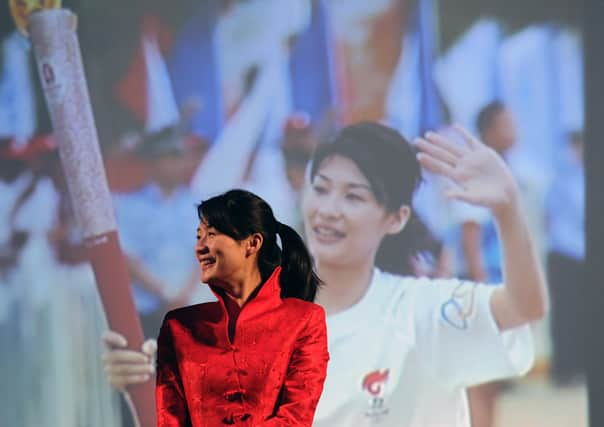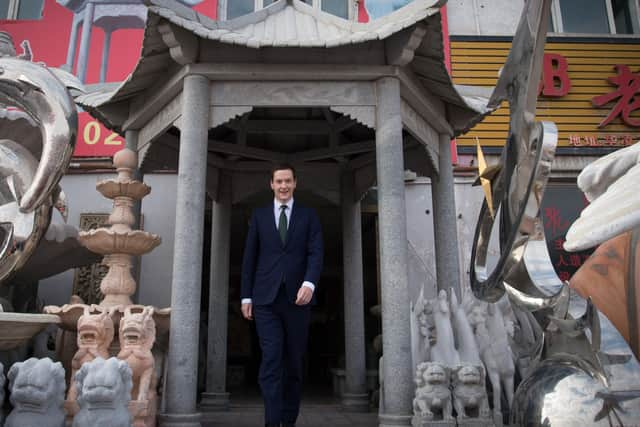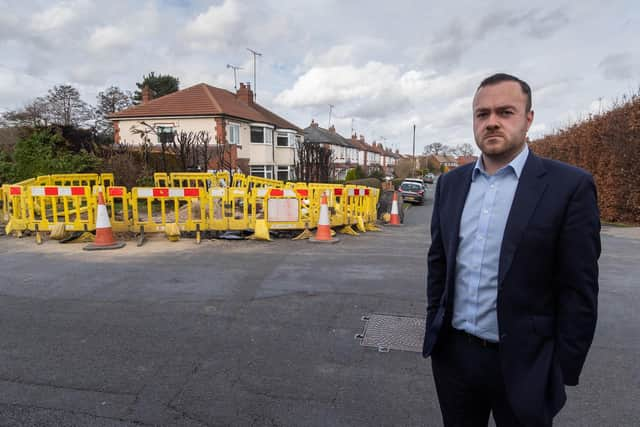Why Leeds councillors must suspend Chinese partnership in protest at human rights abuses - Ryan Stephenson


Commentators across the world are slowly turning their attention to the plight of Uyghur Muslims in China’s Xinjiang region. Despite pro-Beijing forces continuing to play down reports of ethnic cleansing as fake news, the existence of recorded footage showing shaved men, blindfolded, and being loaded on to freight trains draws vivid comparisons to the horrors of the last century.
The Chinese Ambassador to the UK has dismissed this surveillance footage as the ordinary treatment of prisoners, yet it appears the only crime for which more than one million Uyghurs are being held in internment camps is their faith.
Advertisement
Hide AdAdvertisement
Hide AdAnd incarceration is not the sole punishment for the indigenous community of Turkic Muslims: reports of industrial sterilisation of Uyghur women have been corroborated by the Chinese Communist Party’s own records confirming the birth rate in the region has fallen 84 per cent.


Added to which, despite Xinjiang being home to just one per cent of China’s population, over 80 per cent of all surgically implanted intrauterine devices were performed in the communities occupied by Uyghur Muslims.
There is little doubt that the actions of China’s authoritarian rulers in Xinjiang point to genocide and there is little hope that anything will change from within the repressive regime, so it will fall to the international community to use the levers of global diplomacy to force change.
But while national governments contemplate the use of macro-diplomatic levers, local government must also use its increasing clout to effect change. This week Leeds City Council will vote on a motion condemning ethnic cleansing in Xinjiang, calling for independent verification by the United Nations and proposing a form of localised sanction on China with the suspension of the Leeds-Hangzhou international partnership.
Advertisement
Hide AdAdvertisement
Hide AdLeeds first became a sister-city to China’s fourth largest metropolitan area, Hangzhou, in 1988 and the partnership has been credited for the Chinese Olympic Committee’s decision to use Leeds as their pre-Olympic training camp for the London 2012 Olympics.


Alongside sporting and cultural success, Hangzhou has seen exponential economic growth in e-commerce and advanced manufacturing, with increasing business links between Leeds and Hangzhou being the reason council leader Judith Blake led a delegation there two years ago.
The idea of city twinnings with China was originally encouraged to exploit market liberalisation favoured by the Deng Xiaoping premiership, hoping that access to contacts and ‘guanxi’ – Chinese networks – would increase opportunities for the UK to influence decisions made in China.
But the nature of political rule under President Xi Jinping has taken a different path, exemplified by the introduction of oppressive new security laws and the unilateral breach on the Sino-British declaration on Hong Kong.
Advertisement
Hide AdAdvertisement
Hide AdUsing micro-diplomatic levers such as suspending international partnerships with cities in China sends a strong signal to China that sanctions come in various forms, and it also asserts the role of local government in an increasingly devolved domestic arena.
Leeds City Council has not been afraid to flex its muscles and venture into matters of foreign affairs in the past – this time last year the council’s leadership brought forward a motion calling on the United Nations to find a permanent political solution to tensions in Jammu and Kashmir in response to the Indian government’s revocation of autonomy granted to the state in 1949.
Historically, on foreign affairs, the scope of action available to local authorities has been limited, but the political landscape is changing.
Avowing condemnation of ethnic cleansing in Western China, while simultaneously suspending the city’s international partnership with Hangzhou, are tangible actions that could also trigger the beginning of a revolution in micro-diplomacy alongside political devolution.
Advertisement
Hide AdAdvertisement
Hide AdRyan Stephenson is a Conservative councillor and Shadow Executive Member for Children & Families on Leeds City Council.
Support The Yorkshire Post and become a subscriber today.
Your subscription will help us to continue to bring quality news to the people of Yorkshire. In return, you’ll see fewer ads on site, get free access to our app and receive exclusive members-only offers.
So, please - if you can - pay for our work. Just £5 per month is the starting point. If you think that which we are trying to achieve is worth more, you can pay us what you think we are worth. By doing so, you will be investing in something that is becoming increasingly rare. Independent journalism that cares less about right and left and more about right and wrong. Journalism you can trust.
Thank you
James Mitchinson
Comment Guidelines
National World encourages reader discussion on our stories. User feedback, insights and back-and-forth exchanges add a rich layer of context to reporting. Please review our Community Guidelines before commenting.